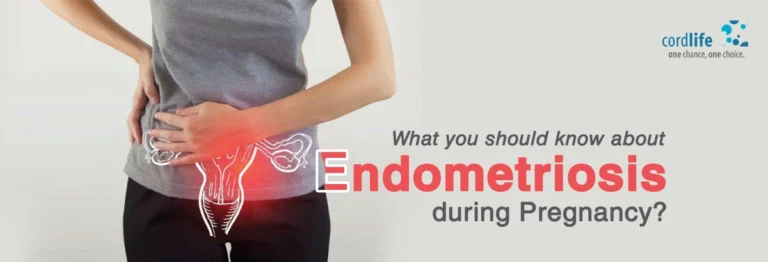If you’ve been trying for a baby for a long time and haven’t been able to, you may come across various reasons for this through tests and scans. It can be due to your age, lifestyle disorders or medical conditions such as polycystic ovary syndrome (PCOS), follicular disorders, as well as uterine disorders (uterine fibroids, diaphragmatic uterus or endometriosis).
In all of these, endometriosis is a condition where a tissue such as the endometrium (the lining of the uterus that is responsible for menstruation) grows in the ovaries, intestines, or pelvic tissues. Endometrial tissue attaches to the outside of the uterus. This is a painful condition, accompanied by heavy bleeding. In addition, endometriosis can be an obstacle to healthy conception.
Studies have revealed that approximately 2 to 10% of women of reproductive age suffer from endometriosis. Up to 50% of this condition can be associated with a reduced chance of getting pregnant.
How does endometriosis affect pregnancy?
The exact causes behind endometriosis may be unknown, but fertility problems associated with endometriosis can be due to a number of reasons. So the known causes of endometriosis include:
Your age
Age is one of the main ones causes of endometriosis. After age 30 or 35, fertility declines rapidly as egg sacs begin to disappear from the ovaries.
Retrograde menstruation
In retrograde menstruation, menstrual blood flows upward during your period through the fallopian tubes, instead of the vagina, and into your abdomen. Additionally, in this condition, the lining of the uterus flows down and out of the vagina causing endometriosis.
Hormonal fluctuations
Estrogen is one of the two main female sex hormones produced by the ovaries. Estrogen levels rise during the menstrual cycle. As estrogen hormones peak just before ovulation, the lining of the uterus thickens. Progesterone hormones, on the other hand, help maintain the endometrium and prepare it for fertilization. The human endometrium and endometriotic cells and tissues are regulated by estrogen and progesterone hormones. Disruptions in endocrine and paracrine pathways lead to inflammatory responses, abnormal tissue remodeling, and therapeutic resistance in patients with endometriosis. The urgent need for a better understanding and effective treatment of this condition is underscored by these factors.
Dysfunction of the immune system
Endometriosis is characterized by a dysfunction of the immune system. There is an altered immune status in women with endometriosis, which can lead to infertility, early pregnancy failure, or abnormal tissue homeostasis.
Genetic
Although scientifically the true causes of endometriosis are still unknown, there is a link between family history and endometriosis. If someone in your family, such as your mother, grandmother or sister, had endometriosis, there is a good chance that it will show up in you through the genes.
As a result of endometriosis, you may experience pain in the lower part of the pelvis. As a symptom of endometriosis, you may also feel pain during your period, during and after sex with your partner, and while visiting the bathroom.
How can you treat endometriosis?
Endometriosis is associated with barriers to becoming a mother for a number of reasons, as mentioned above.
Whether you have the condition, your doctor may run some tests like pelvic exams, ultrasound, laparoscopy, and magnetic resonance imaging (MRI) as part of the diagnosis.
There are no safe treatment methods available endometriosis and its symptoms. However, the possible treatment methods for this condition depend on the severity of the symptoms. It can be medical or natural.
Medical Treatment
During your endometriosis medical treatment procedures, your healthcare professional will give you a few things to increase your chances of pregnancy:
- Birth control pills, shots, patches and vaginal rings
- Surgery helps relieve symptoms
- Egg freezing technique
- Intrauterine insemination is an option for mild endometriosis
- Ultrasound to make sure the eggs are ripe
- In vitro fertilization (IVF) treatment. About half of fertility success rates are due to IVF treatments.
Eat healthy and nutritious food
Experts and health care providers will always recommend that you eat high amounts of fats to produce chemicals known as prostaglandins. It can cause more estrogen to be produced. Include fruits and vegetables and keep your refrigerator stocked with pre-washed and cut fruits and vegetables.
Be active regularly
Exercise is a wonderful way to treat endometriosis. Endometriosis is less likely to occur if you do high-intensity exercise such as running or cycling. Along with this, low-intensity workouts include yoga, meditation, or simply creating a self-care routine.
Don’t worry! Track your lifestyle and visit your health care professional to plan your family.
